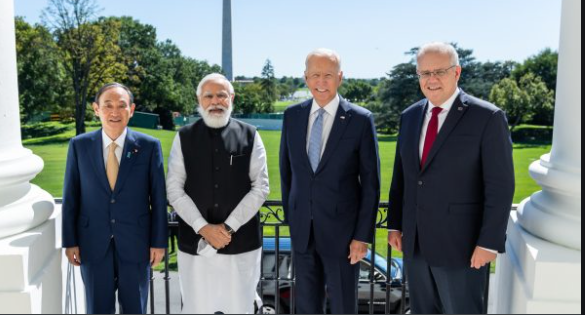Virendra Pandit
New Delhi: In a first, and bold diplomatic initiative, India on Friday said China may not “necessarily replace” the United States as a superpower.
External Affairs Minister S. Jaishankar made this remark at a panel “Greater Power Competition: The Emerging World Order” at the Bloomberg New Economic Forum, organized in Singapore, the media reported.
When asked whether the US’s power has been strategically contracting and it is yielding space to other countries amidst a global rebalancing of power, he dismissed it as a “ridiculous” idea, saying that the US is now a much more flexible partner, more open to ideas, suggestions, and working arrangements than in the past.
“Don’t confuse it with the decline of the United States. I think that’s ridiculous,” he said in response to a question from the moderator at the session, also attended by former US Secretary of State Hillary Clinton and ex-British Prime Minister Tony Blair.
He also rejected the idea that China could replace the US as a superpower.
“The nature of China, the manner of its growing influence, is very different. And we don’t have a situation where China necessarily replaces the United States. Well, it’s natural to think of China’s rise as the overarching happening. The fact is, there are also a lot of other countries, including India, which have come much more into play. There’s been a rebalancing in the world”, he said, according to the media reports.
Citing the Quadrilateral Security Dialogue (QUAD) forum as an example, he pointed out that some countries are coming together on a certain set of concerns and issues or interests. The QUAD, comprising India, Japan, the US, and Australia, was formed to develop a new strategy to keep the critical sea routes in the resource-rich Indo-Pacific free of any influence.
The US, he said, is now much more open to ideas, suggestions, and working arrangements than in the past.
“It is certainly not unipolar, and it is not really bipolar either. There are many more players. A lot of what we are doing in terms of repositioning, working with countries, (it) is multipolar work,” he said. “In a sense, it is partly a hedging strategy, partly autonomous partnership, often very issue-based (as) we work with different countries on different sets of issues.”
Dr. Jaishankar said that in the old days, it mattered little what the neighbor’s domestic system was. “Today, issues of trust and transparency are much more relevant in a data-driven world. So it does matter to me what the character of my partner is, who they are partners with. So these are all new factors, which I would suggest is really taking the world in a very, very different direction.”
Now, India’s interests are definitely served with a much closer relationship with the United States, with a much stronger relationship with Europe, and the UK, and re-energizing the relationships with the ASEAN and especially Singapore, he added.

